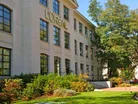Executive shakeup at L’Oreal China amid growing complexities

French beauty powerhouse L’Oreal is boosting its China business with new executive hires, as it looks to address challenges in its second-largest market.
While the Paris-based group reported a brisk rise in third-quarter sales in October, lifted by growth in Europe and the US, it missed expectations for a strong rebound in China, with sales growing just 7.7% over the first nine months.
L’Oreal, which owns labels ranging from Maybelline to Lancome, attributed this to tighter Chinese government control over resellers, impacting travel retail, particularly in Hainan and South Korea.
Founded in 1997, L’Oreal China has grown to become the second-largest market for L’Oreal worldwide – with six offices, 10,000 employees and a unique portfolio of 25 bands – and the number one beauty group in China, accounting for the biggest share of China’s US$78.9 billion beauty and personal care market in 2022.
And while China has been slow to recover from the pandemic, delivering in 2023 what the French beauty house described as a “muted recovery”, L’Oreal remains “ambitious” for the business in China, with plans to expand premium labels like Lancome into lower tier cities, according to CEO, Nicolas Hieronimus.
To accelerate growth and deal with the increasing complexity in the China market, L’Oreal has made two new executive appointments, effective February 2024, including the creation of a new deputy CEO in charge of divisions for L’Oreal China.
New CEO and brand-new deputy CEO role
Serving as GM, Travel Retail Manager since 2016, veteran L’Oreal executive Vincent Boinay will relocate from Paris to Shanghai to take the helm of the group’s China business, while Laurence Ma, GM of L’Oreal Luxe China since 2021, will move into the newly created Deputy CEO role.
In this new role, Ma will continue to run L’Oreal Luxe China, having succeeded in gaining market share despite a challenging external context, and will lead the other three Divisions.
Ma initially joined L’Oreal China 26 years ago and is credited with building the Lancome brand into “undisputed leader” in the Chinese luxury market.
According to Hieronimus, Ma has made an “incredible contribution to our success in China” thanks largely to her strong leadership and a “remarkable ability to continuously reinvent the business models of the brands in her charge”.
Joining Ma, Vincent Boinay will take the reins as CEO and President North Asia. He has more than 30 years of experience at L’Oreal with particular expertise in travel retail, an area that needs addressing in the Chinese context.
As GM, Travel Retail Manager since 2016, Boinay has transformed the business, strengthening the group’s global leadership in the sector and making it a major contributor to L’Oreal’s growth and bottom line.
Joining L’Oreal in 1992 as a marketing trainee, Boinay held various commercial roles in Europe before being appointed Deputy GM for Lancome in 2000 and then GM of L’Oreal Luxe in Japan.
Described by Hieronimus as a “strategic leaders with a genuine love for the vulture and people of the North Asia region”, Boinay succeeds Fabrice Megarbane, who will be stepping into the chief global growth officer at the end of January next year, taking on a role that had been held by Frédéric Rozé, who has announced his intention to retire after 38 years at the group.
- How Longi became the world’s leading solar tech manufacturerSustainability
- Why Kotak Mahindra Bank has appointed an outsider as CEOLeadership & Strategy
- Why Manu Jain is the right leader to grow G42 in IndiaLeadership & Strategy
- DHgate's Diane Wang – Microsoft exec to ecommerce pioneerLeadership & Strategy



